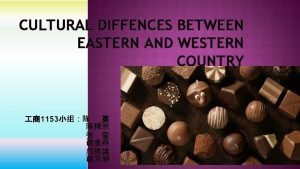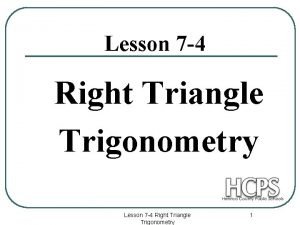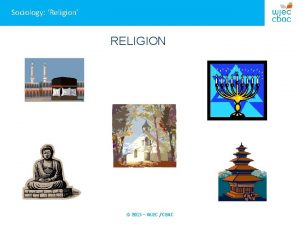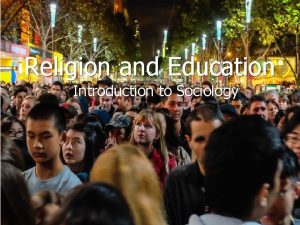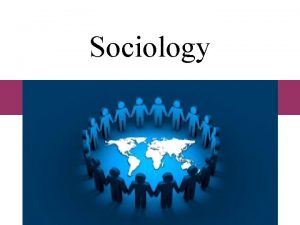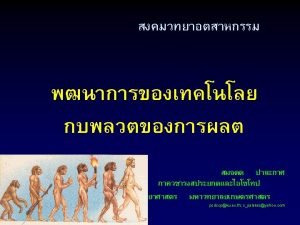Sociology of Religion Unit 3 Sociology of Religion







- Slides: 7

Sociology of Religion Unit 3

Sociology of Religion Unit III Ø Science and Spirituality Ø Secularization Ø Important terms associated with Secularization Ø Modernity Ø Some Aspects of Modernity Ø Discontent and Paradoxes

Science & Spirituality • Spirituality is the science of the ‘life’ giving substance. • Einstein, “Without religion science is lame and without science religion is blind”. • Sri Aurobindo’s teaching and philosophy us utmost important for present society where science and spirituality should go together. • Sri Aurobindo philosophy is based on the concept of reality of Being and consciousness amidst the big universe in which we live. • He wants people to become aware of their ‘true self’ and presence of divinity lying within them. • Aurobindo said ‘if an individual wants to experience delight he must strive to discover the higher spiritual nature’. When a person discovers his true self and the power of divinity within him, it brings about arise in his level of consciousness which enables him to raise above ego.

• Aurobindo developed a method of spiritual practices called ‘internal yoga’. • The central theme of his vision was the evolution of human life into a life divine. • He believed in spiritual realization that not only liberated man but changed his nature, enabling the divine life on the earth. • Aurobindo spirituality was united with reason. • His aim was not only liberation of individual and realization of the self to effect the spiritual transformation and to bring down the divine nature and the divine life into the mental vital and physical nature and life of humanity. • He observed the divine truth is greater than any other religion or creed or scripture or idea or philosophy. • The evolution of human life into life divine was main theme of his vision.

Secularization • Secularization is primarily a process of change in religion and society. • More specifically, it is an interpretive paradigm used to explain the emergence of the modern world that is radically different from what came before it. • In sociology of religion, secularization is a process said to have led to religions becoming more marginal in contemporary societies.

• Secularization is often associated with such concepts as social change, decline of organized religion, desacralization of society, conformity with this world, etc. • The word secular has its root in the latin saeculum that means “period of time”, “generation”, or “age”. • It was neutral term with no negative or positive connotation. • In the Vulgate transmission of the new testament, the meaning of the word was ambiguous. • It could assume a neutral meaning, ie. , to signify “a great length of time” or it could be used as a religiously negative to signify this world.

• The word secular is derived from the Latin word saeculum which means century or age. • Saeculum was the profane time and the time of ordinary historical succession, as opposed to sacred time. • Time was interwoven with higher times variously called ‘eternity’, the time of the Ideas, or the time of the Origin, or the time of God.

